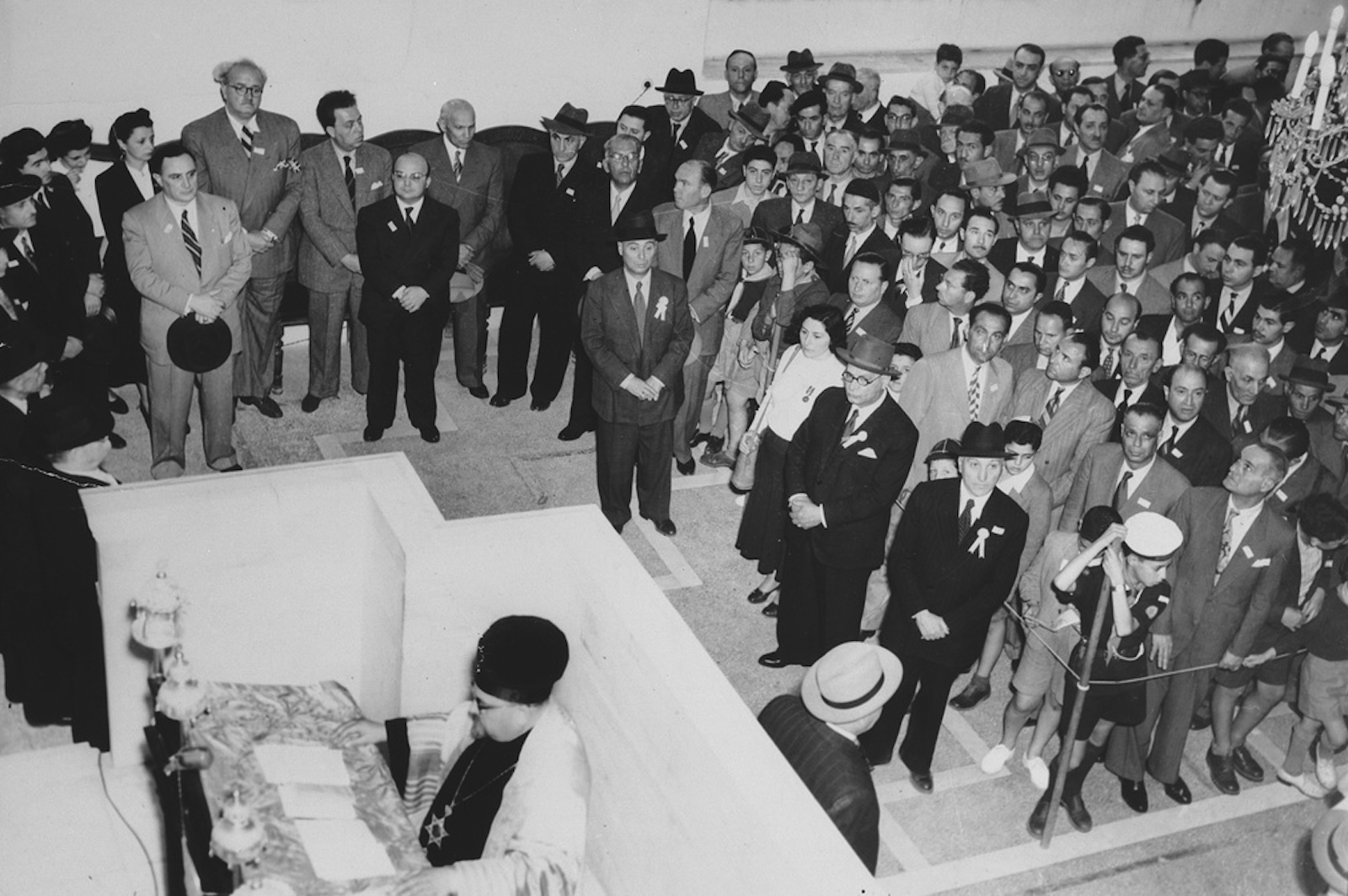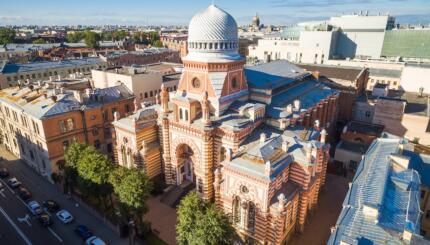Greece is home to the oldest Jewish community in Europe, with the first evidence of a Jewish presence dating back to antiquity. An inscription dating from around 300 BCE, found in the Attica region, refers to a certain “Moschos Moschionos,” a Jewish slave freed by his owner who is often considered the first Greek Jew. But while there is no clear evidence to prove it, it’s likely that the Jewish presence in Greece goes back even further. After the destruction of the First Temple in Jerusalem by the Babylonians in 586 BCE, some Jewish exiles are believed to have settled in Greece.
According to the Book of Maccabees, which was written in the second century BCE, there were Jewish communities in different regions of Greece, including Attica (notably Athens), Macedonia (notably Thessaloniki), and on the islands of Crete and Rhodes. On the island of Delos, archaeologists have discovered a synagogue dating from around 150 BCE which is considered the oldest in Europe. In the first century CE, in the Acts of the Apostles, the apostle Paul confirmed the presence of Jews in several cities of Greece.
Since Byzantine times, these ancient Greek Jews have been known as Romaniotes. Many Romaniote customs melded Greek and Jewish elements. They spoke a Greek dialect, known as Romaniote or Yevanic (Judeo-Greek), and chanted prayers in Greek, as Romaniote Jews still do today. Their style of Torah chanting was strongly influenced by Byzantine rhythms.
Beginning in the late Middle Ages, the community grew thanks to the arrival of Jewish refugees fleeing persecution elsewhere in Europe. During the Crusades, Ashkenazi Jews, mainly from Hungary and Transylvania, fled to Greece. So did Sephardic Jews fleeing the expulsion of Jews from Spain and Portugal in the late 15th century, bringing with them Iberian cultural traditions that they merged with Balkan and Oriental Jewish customs. And in the 16th century, a number of Italian Jews settled in Greece. Though the Greek Jewish community was diverse, the Sephardim were in the majority, and they imposed their language and culture on most of the other Jewish communities in the country.

Help us keep Jewish knowledge accessible to millions of people around the world.
Your donation to My Jewish Learning fuels endless journeys of Jewish discovery. With your help, My Jewish Learning can continue to provide nonstop opportunities for learning, connection and growth.
The largest Jewish community took root in Thessaloniki (called Selanik or Salonika by the Ottomans), today the second-largest city in Greece. By the 16th century, more than half the population of Thessaloniki was Jewish, earning it the nickname “Madre de Israel” (“Mother of Israel,” in Ladino) and, in the 19th century, “Jerusalem of the Balkans.” Jews would constitute a majority in the city into the 1800s, during which Thessaloniki became the largest economic center of the Ottoman Empire in the Balkans and one of the most important seaports in the Mediterranean, even though the port was closed on Shabbat. The sultan even commissioned some Thessaloniki Jewish tailors to manufacture uniforms for the Ottoman infantry.

On the eve of World War II, about 75,000 Jews lived in Greece and more than 30 Jewish communities were recognized by the state, including Thessaloniki, Corfu, Rhodes, Crete, Athens, Volos, Larissa, Ioannina, Serres, Komotini and Kavala.
The Holocaust
During World War II, Greece was occupied by three countries: Germany, Bulgaria and Italy. The Germans and the Bulgarians began systematically implementing the Final Solution in the north of the country, where Thessaloniki is located, looting Jewish property and confining the Jews to ghettos before deporting them. The extermination rates in the north of Greece topped 95 percent. The Italians did not organize any deportations and sometimes even saved Jews. But in September 1943, the Nazis took over the Italian zone and began deporting Jews from Corfu, Crete, Ioannina and Athens, among others. In the Greek capital, the heroism of the city’s chief rabbi, Elias Barzilai, assisted by sympathetic Greek leaders, including Athens Police Chief Angelos Evert, managed to help most of the Jews escape deportation.
In 1943 and 1944, an estimated 62,000 Greek Jews were deported to Auschwitz or Treblinka. Another 2,500 Greek Jews died before they could be deported. The route from Greece to the extermination camps could take as long as a month and is considered the longest deportation route inside Europe. It is impossible to know how many Jews survived the journey. All told, nearly 90 percent of Greek Jews perished in the Holocaust, one of the highest percentages in Europe.
After the war, 2,000 survivors returned from the camps, joining another 8,000 Jews who survived the war in hiding. These survivors attempted to rebuild their lives, but this was almost impossible. Greece experienced a civil war between 1946 and 1949, and the severe instability and persistent antisemitism pushed about half of those 10,000 Jews to leave, mainly for Palestine and the United States.

The Greek Jewish community today
Today, about 4,500 Jews live in Greece spread across nine communities. The largest is in Athens, with about 2,500 people. The others are in Thessaloniki (about 1,000 people), Larissa, Volos, Chalkida, Ioannina, Trikala, Rhodes and Corfu. Some Jews also live in Crete.
Antisemitism is a persistent problem, but it is largely confined to vandalism rather than acts of physical violence against Jews. During the economic crisis, between 2010 and 2020, many Jewish memorial sites and synagogues were vandalized. But the Greek government has taken a firm stance against extreme right-wing movements and promoted Holocaust memorialization, gradually adding Holocaust studies to the public school curriculum. Greece also maintains close relations with Israel. As of 2024, more than 360 non-Jewish Greeks received the title of Righteous Among the Nations from Israel’s Yad Vashem Holocaust museum in recognition of their efforts to save Jews during the Holocaust, a significant number for a small country.



